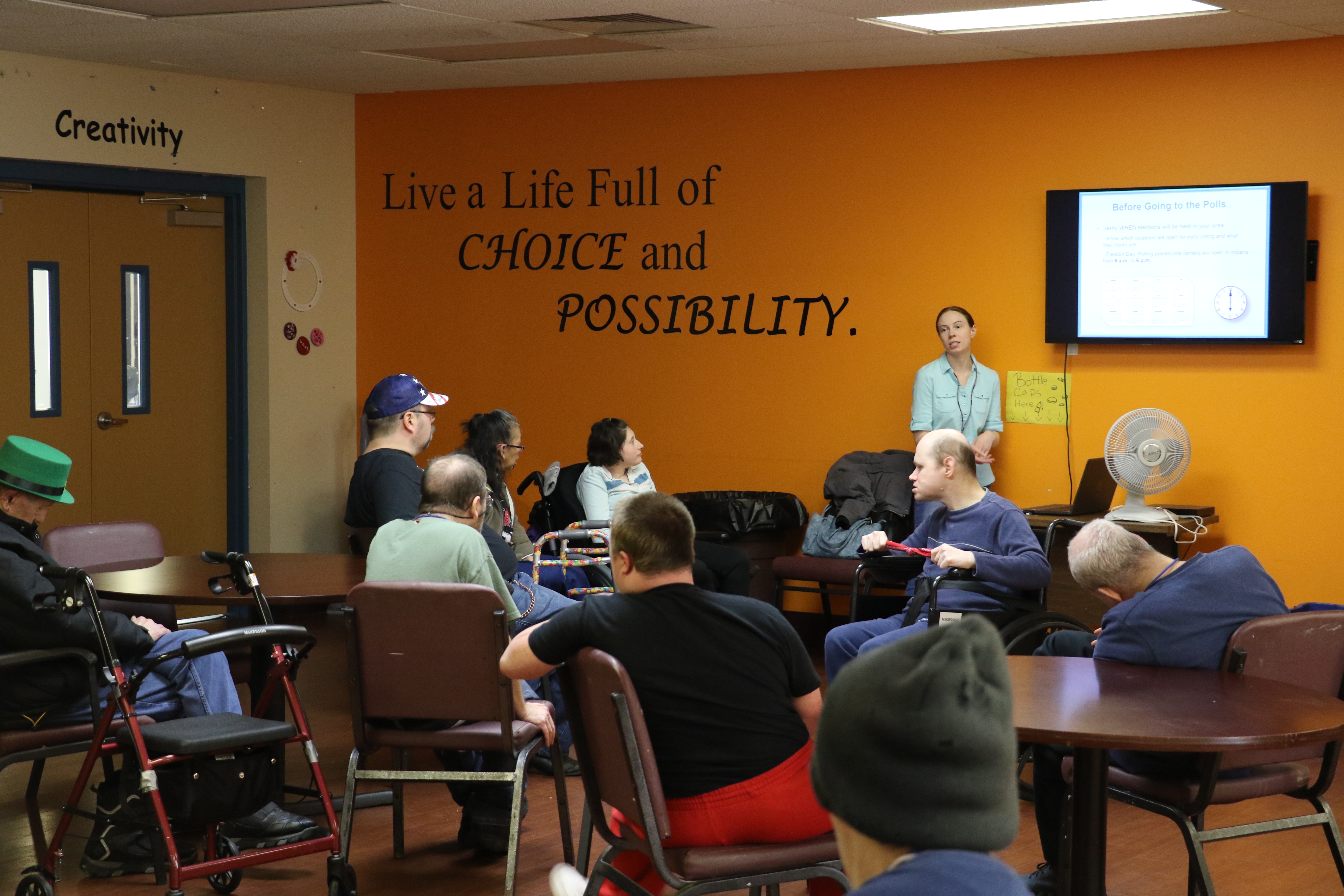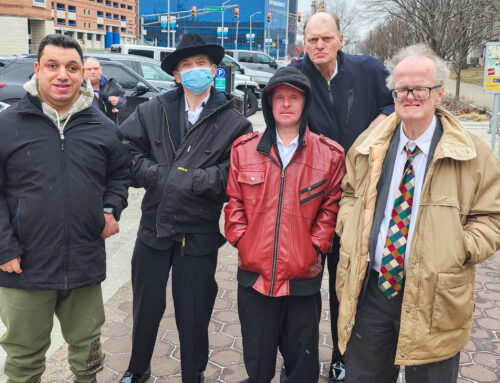This is a blog by David Polaski
Flip through one of ADEC’s new “Your Individual Rights” booklets and toward the end, you’ll find a seldom talked-about right.
“You have the right to learn how to register to vote and vote.”
For some ADEC clients, having the right to vote is foreign. They’ve never been asked if they want to vote, their feelings on elected officials and how to go about registering and going to the polls.
When asked if I wanted to spearhead a push to schedule and work with the Elkhart County Clerk’s office to teach ADEC’s Elkhart Day Services how to vote and register willing clients, I would have been a fool to turn it down. As someone who is actively involved in Elkhart County politics, it was right up my alley.
As a country, the United States has come a long way with voting rights. In 1990, the federal government passed the Americans with Disabilities Act. Under Title II, state and local governments are required to ensure people with disabilities have the equal right to vote as everyone else and applies to all aspects of the voting process. In 2016, 56 percent of those with disabilities cast a vote in the presidential election, compared to 62 percent of those without disabilities. Those who had intellectual disabilities cast a ballot at just 43.5 percent.
Sure, voting has political implications, but at its root, it’s much purer. Casting a vote is a person’s way of telling their community and the country that their voice matters. For some with intellectual and developmental disabilities, speaking up isn’t easy to do. For some, impossible. Voting is a way to make voices heard, without ever saying a word.
Recently, United States Secretary of Education Betsy DeVos proposed cutting $17.6 million from the Special Olympics. While the cuts are unlikely to successfully pass through Congress, it’s a reminder of how important the vote of those with intellectual and developmental disabilities is.
Every Friday in March, Elkhart County Voter Outreach Coordinator Kelsey McClure has traveled to one of Elkhart’s Day Services and given a seminar to our individuals about the right to vote, the voting process, how to register, voting absentee, how to cast a ballot and where polling locations are. I watched as individuals listened intently and filled out voter registration applications. Some even took registrations home with them so their staff, Direct Support Professionals, could help fill them out.
I heard them ask insightful questions, such as “What kind of ID should I bring when I go to vote,” to “Do I need to register again if I’ve recently moved and my address changed,” and “Can I vote if I was registered in another state, but moved to Indiana?”
Kevin Seymore, an individual at ADEC’s Bristol Day Service, told Kelsey that her presentation was amazing and on a scale of one to ten, he’d give it a ten.
Giving ADEC individuals the knowledge to make their voices heard is what makes this “March to Vote” so important. Voter registration for the municipal primaries ends on April 8, with the primaries taking place on May 7.
We don’t endorse candidates at ADEC, but we endorse giving our individuals the choice and possibility to go to the polls and choose who they want. Those at ADEC have the exact same representation as their peers, and their votes count exactly the same. Giving our individuals the opportunity to cast a ballot is another way ADEC allows them to live their lives to the fullest and have the freedom to make their own choices.
Voting to get officials elected is important. Voting to let everyone know that your opinion matters, even more so.












